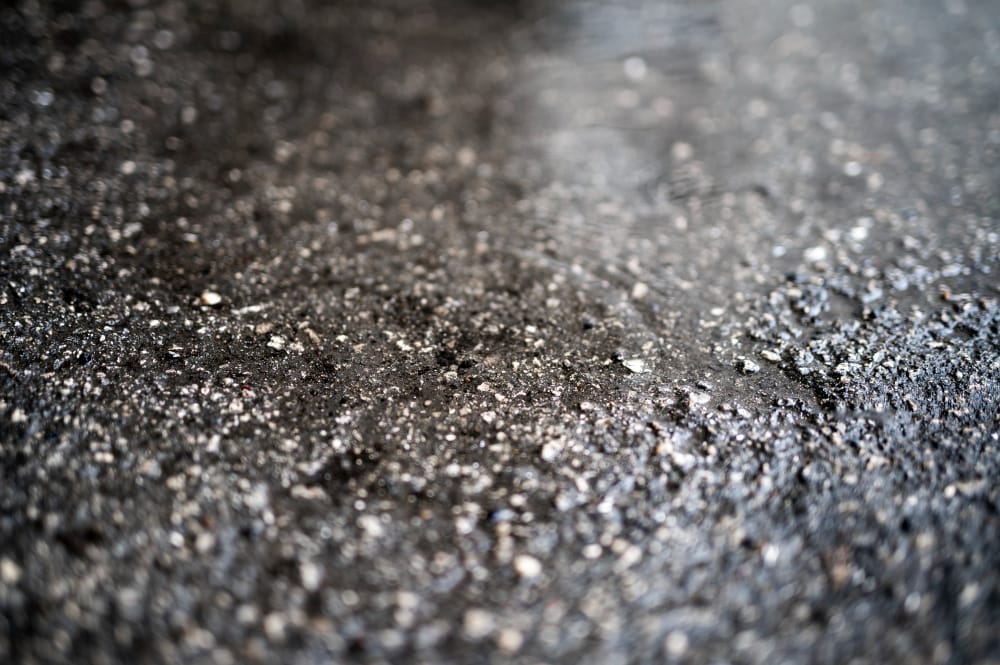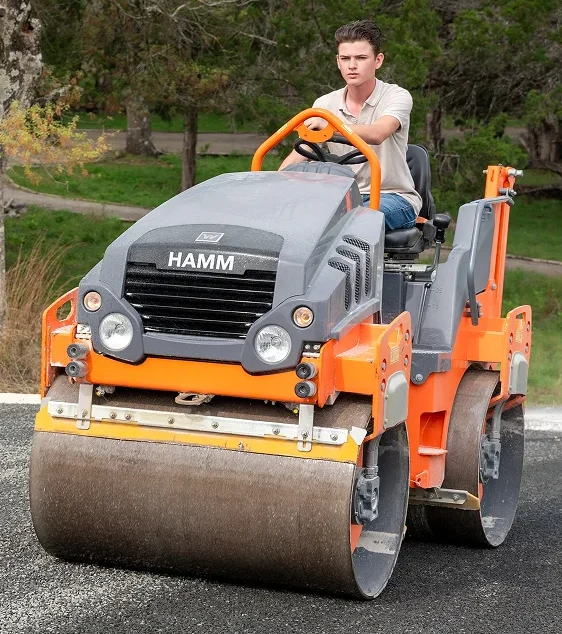The Great Road Surface Debate: Chip Seal vs. Asphalt: When you’re cruising down a road, the smoothness under your tires might remain unnoticed unless the ride is particularly jarring.

When you’re cruising down a road, the smoothness under your tires might remain unnoticed unless the ride is particularly jarring. But for the folks responsible for laying those roads, choosing the right surface management technique is critical for a lasting and economic infrastructure. In this in-depth comparison, we dive into the pros and cons of two popular methods: chip seal and asphalt.
As a resident of Fredericksburg, Texas, where rural charm meets modern demand, the decision on road surfacing is both a matter of necessity and the identity of the town. If you’re looking for insight into maintaining your local roads or considering these methods for your own property, this exploration will shed light on the best course. Let’s settle this debate once and for all, chip seal or asphalt: which is the superior surface for you?
The Basics: What Is Chip Seal and Asphalt?
The Great Road Surface Debate: Chip Seal vs. Asphalt
Before we roll up our sleeves, let’s get back to the basics. Chip seal is a cost-effective resurfacing method used to extend the life of a road for low to medium traffic volume roadways. It resembles a gravel road but has a much lower cost. Chip seal has multiple benefits but is not the right tactic for every project.
Asphalt, also known as blacktop, is a mix of stone, sand, and asphalt cement. It is used to pave roads, parking lots, and driveways. Similar to chip seal, asphalt is laid down as a hot, tar-like material before being compressed.
The Cost Comparison
One of the most significant considerations for any project is cost. Chip seal is generally less expensive than asphalt, which can be an attractive proposition for budget-conscious projects. Local governments and municipalities often favor chip seal for its immediate economic benefits.
Conversely, while the initial investment in asphalt can be higher, it is often considered a more cost-effective long-term option. Asphalt requires less frequent maintenance and repair, leading to potentially lower costs over the life of the road.
Durability and Longevity
The Great Road Surface Debate: Chip Seal vs. Asphalt: Durability is a pivotal point in the chip seal vs. asphalt debate. Chip seal can hold up for several years, typically around seven to ten under ideal conditions, before needing to be reapplied. It provides adequate protection against the elements and offers some skid resistance.
In contrast, the smoother and more impervious surface of asphalt enables it to withstand heavy use and inclement weather for upward of twenty years without needing significant maintenance. It can better resist high-speed traffic wear and tear, as well as the potential for potholes.
Weathering the Weather
Your local climate can play a significant role in deciding which surfacing method is best. Chip seal maintains its silver bullet against the sun’s harsh UV rays and the battering of rain. Because asphalt is a dark and less reflective material, it absorbs more heat and is more susceptible to the expansion and contraction caused by temperature fluctuations. This can lead to cracking and rutting over time.
Environmental Impact
In our modern age, the environmental footprint of any roadwork is crucial. Chip seal’s use of local materials and lesser need for maintenance means it can offer a smaller carbon footprint, especially for more minor roads where frequent maintenance isn’t necessary. It can also be more eco-friendly in terms of wastewater management and air quality due to its water drainage characteristics and its potential for helping to mitigate dust.
While asphalt has a larger initial carbon footprint due to the energy-intensive nature of its production and installation, it is more easily recyclable. The Hot Mix Asphalt (HMA) recycling process uses over 99% of the materials, and the longevity of the material means less frequent reapplication, which can balance out its environmental impact over time.
Aesthetics and Desirability
Appearance and public opinion are important factors, particularly for municipalities interested in attracting tourism and maintaining quality of life for residents. While some find the gravelly texture and natural look of chip seal appealing, others see it as an eyesore. The sleek black look of asphalt is generally more widely considered aesthetically pleasing.
Noise Level Considerations
For residential and less trafficked areas, noise pollution can be a significant concern. Chip seal is rougher, which can generate more noise, and some people find it less pleasant than the smoother, quieter ride of asphalt.
The Chip Seal Experience in Fredericksburg, TX
The charm of Fredericksburg lies in its history, architecture, and rural environs. The decision to employ chip seal in road maintenance projects aligns well with the town’s preservation mindset. Residents and visitors experience a form of transportation that feels integrated with the scenic and lasting aspects of the town, even if it sacrifices some modern comforts.
Making Your Decision: Consult with C. Brooks Paving
If you’re looking to undertake a surfacing project and are unsure which method is best for you, it is advisable to consult with professionals. C. Brooks Paving has been serving the Fredericksburg, Texas area for years, and their expertise can help guide you to the best choice for your specific project.
Considering the local climate, traffic patterns, and desired aesthetics, C. Brooks Paving’s consultation can lend clarity to your decision-making process. With their skills in both chip seal application and asphalt paving, they are uniquely positioned to offer insight and direction to ensure the longevity and quality of your road surfaces.
Conclusion: The Great Road Surface Debate: Chip Seal vs. Asphalt
The Great Road Surface Debate: Chip Seal vs. Asphalt
In the end, the choice between chip seal and asphalt is not one-size-fits-all. It depends on a variety of factors, from your location and budget to the intended use and longevity of the road. If you’re looking for an affordable short-term solution that still looks cohesive with the environment, chip seal in Fredericksburg, TX might be the way to go. On the other hand, if you value a sleek look and seek a long-term return on investment, asphalt could be your smooth operator.
Remember, the path you pave today shapes the journey of tomorrow. Take the time to assess your needs and goals carefully, and the road will reveal itself—from its first layer to the last. And should you need a guide along the way, the professionals at C. Brooks Paving are ready to ensure your road’s optimal performance. If you need help with chip seal in Fredericksburg, TX, contact C. Brooks Paving today to schedule an appointment.
Speak with an expert TODAY!
Follow C Brooks Paving on Facebook





